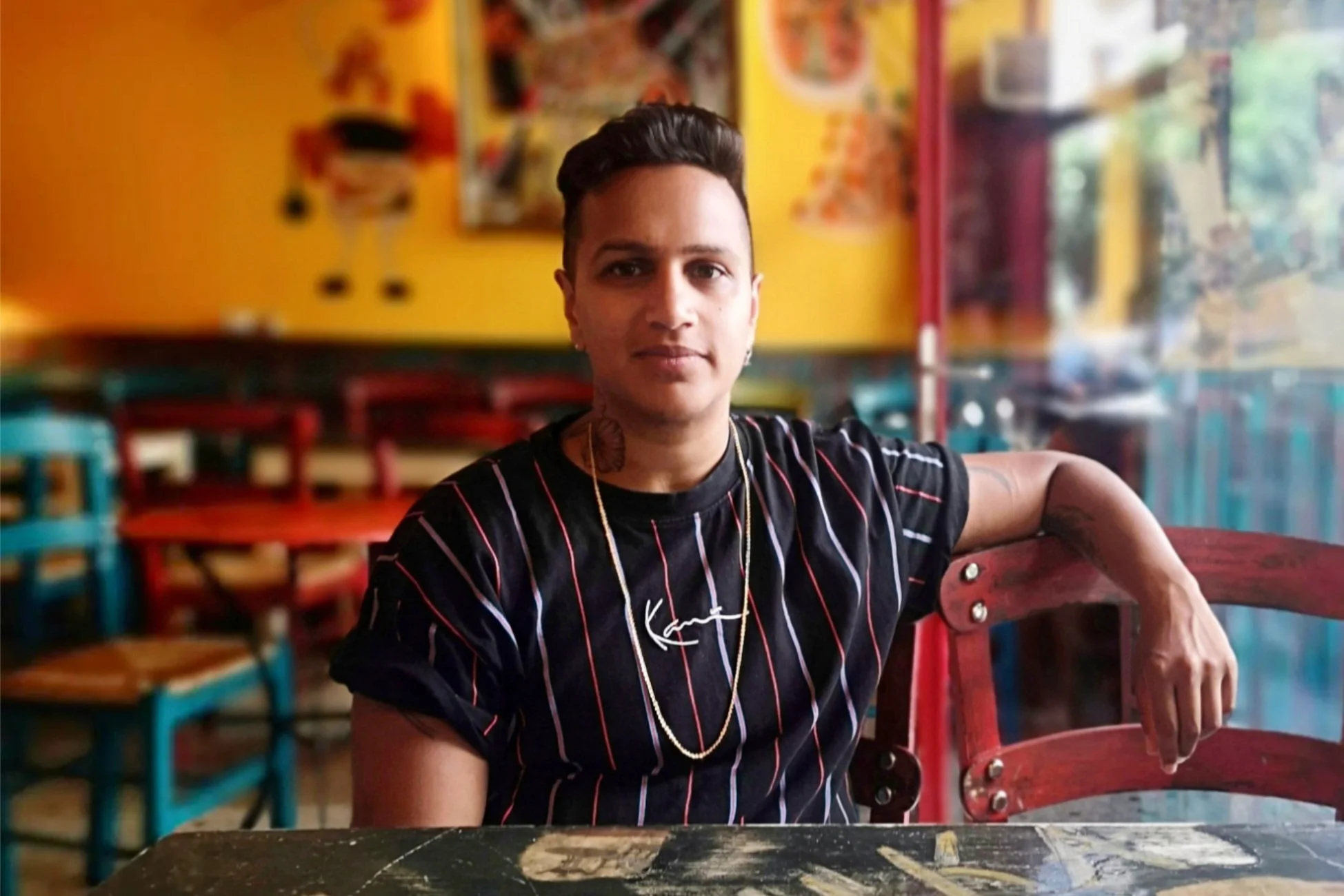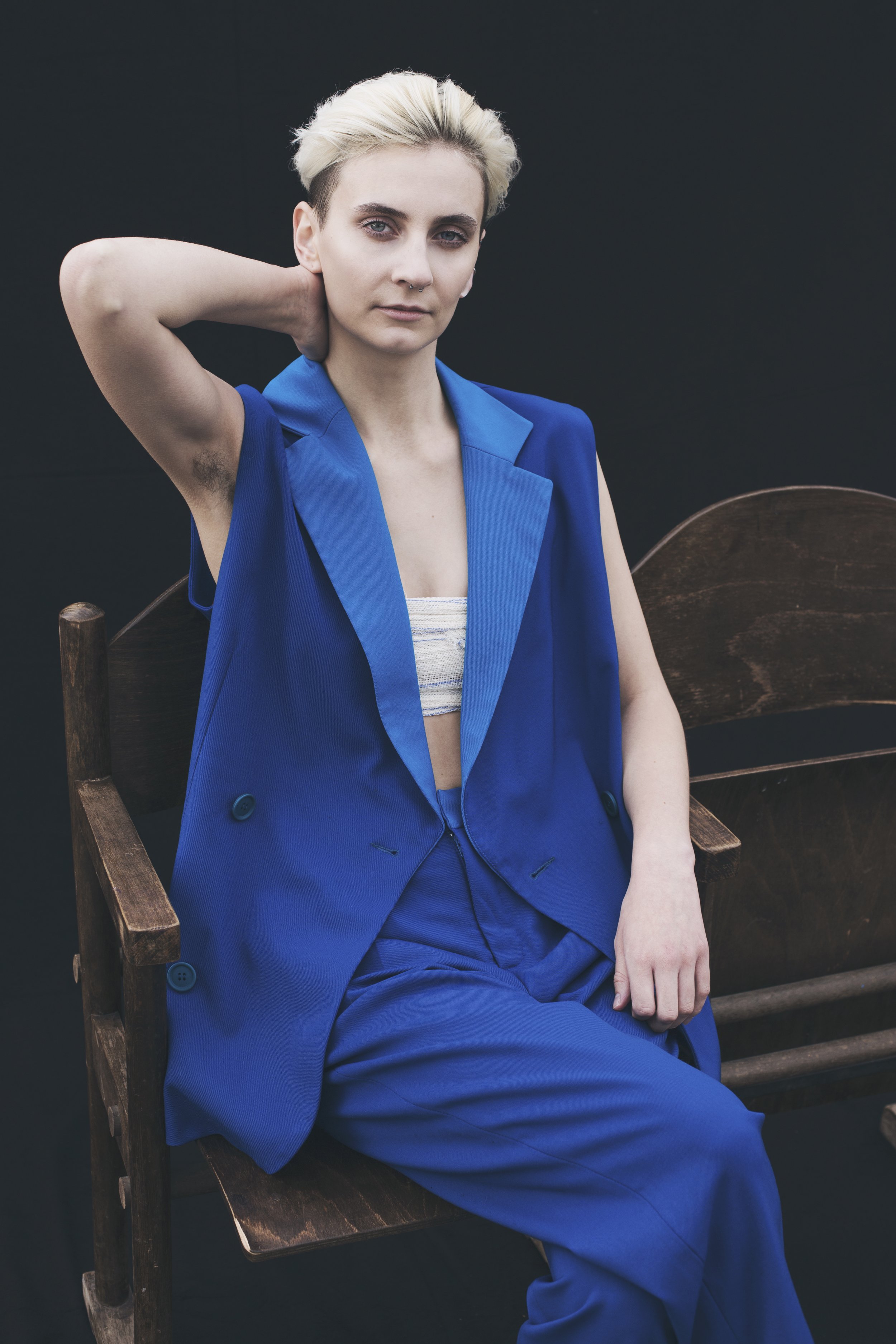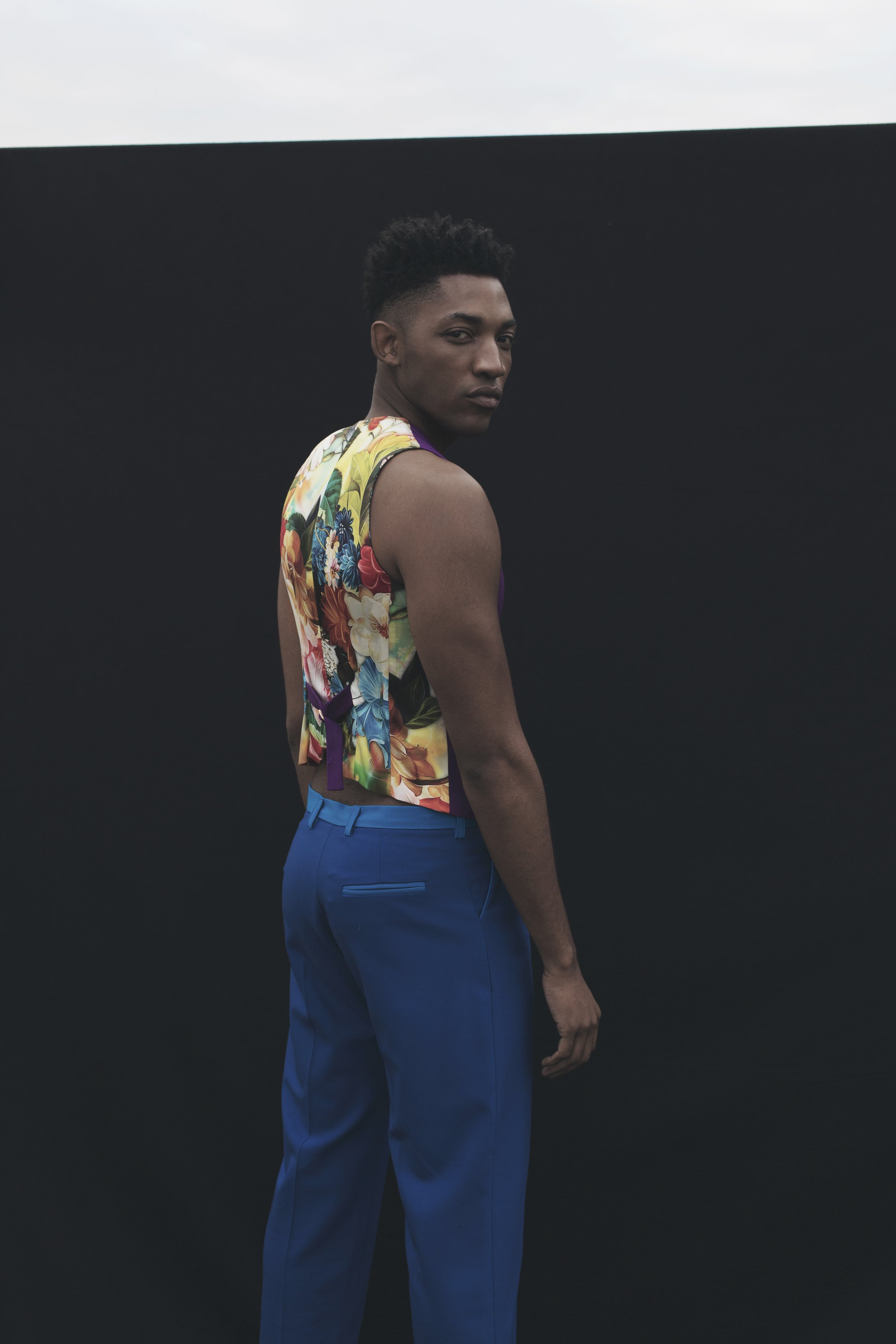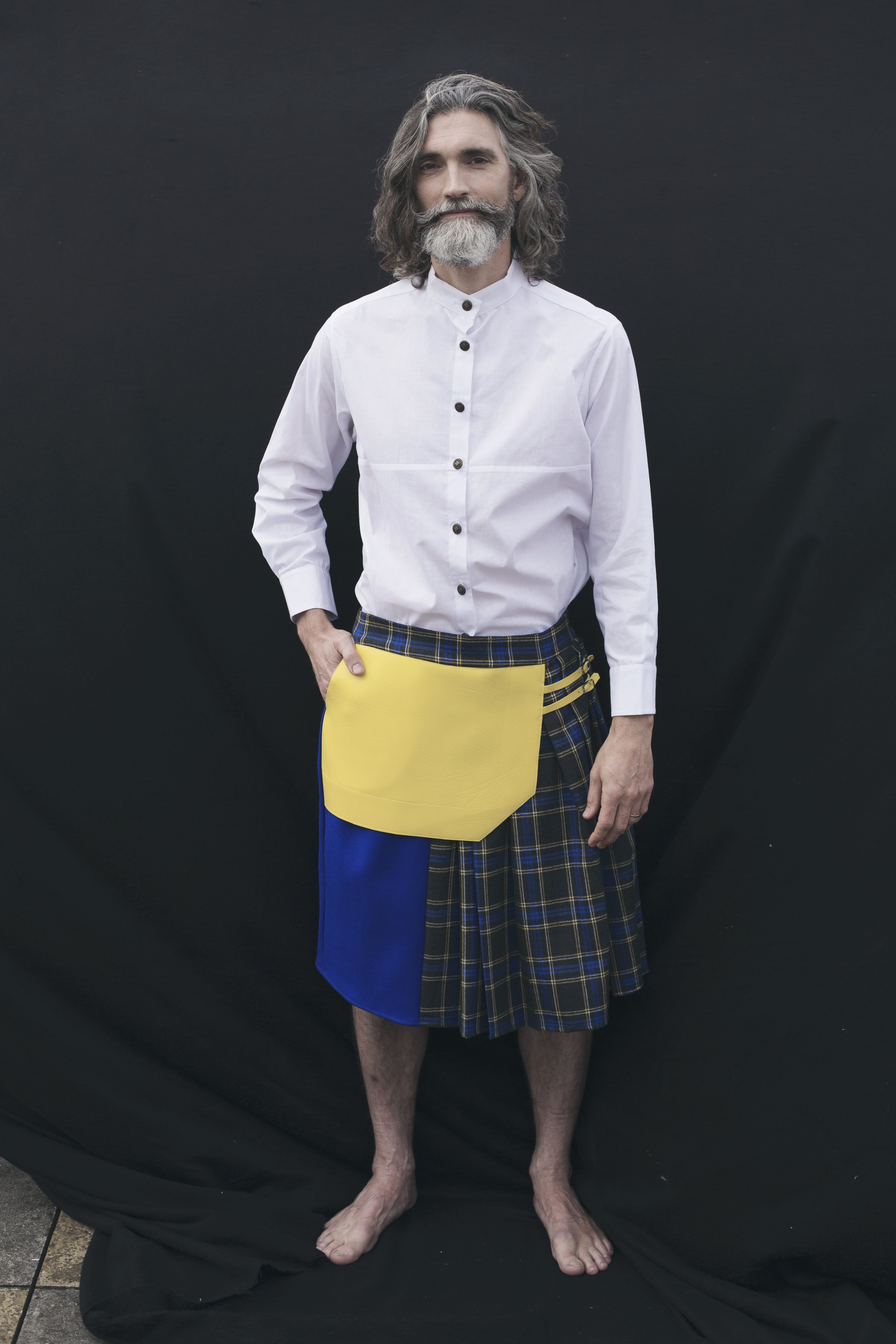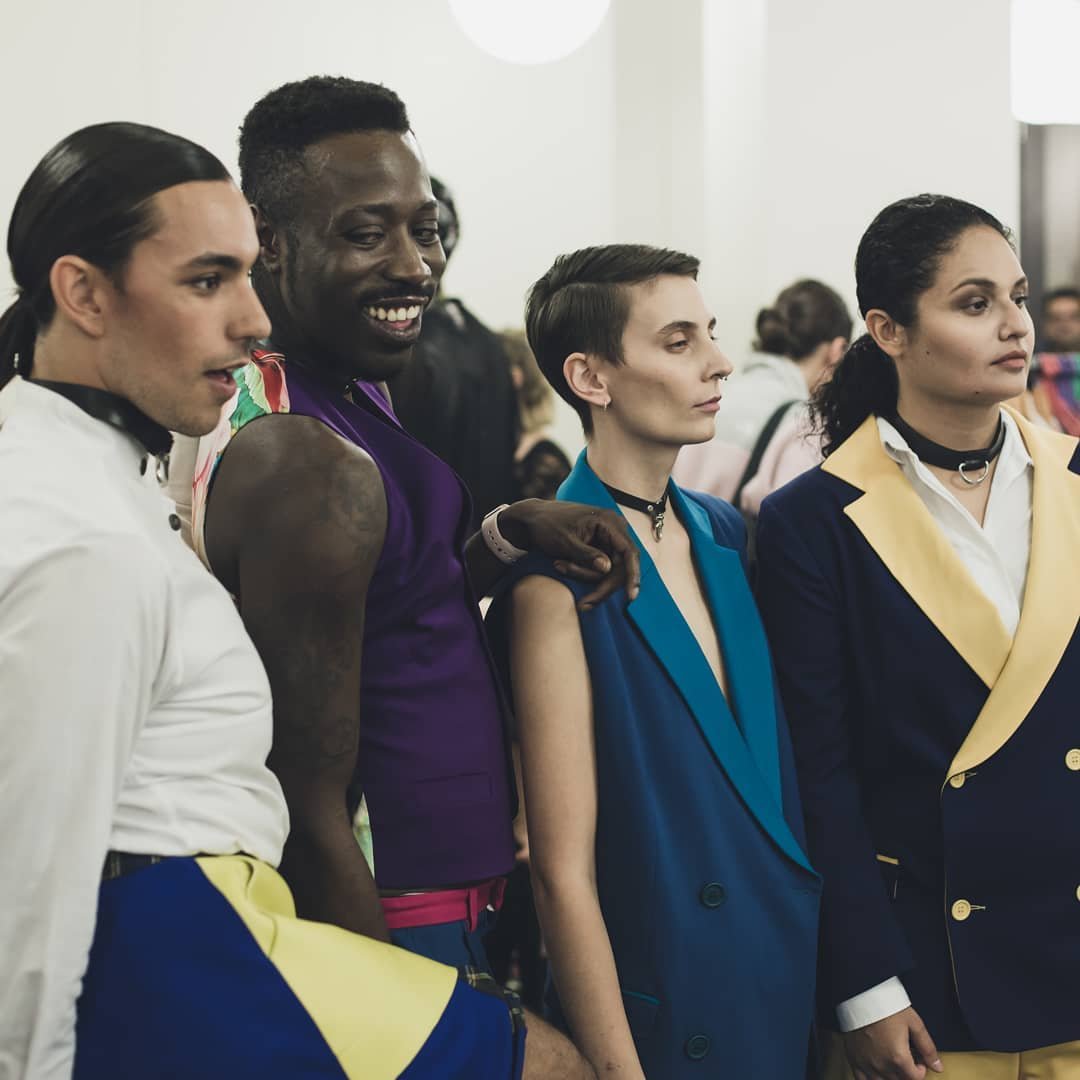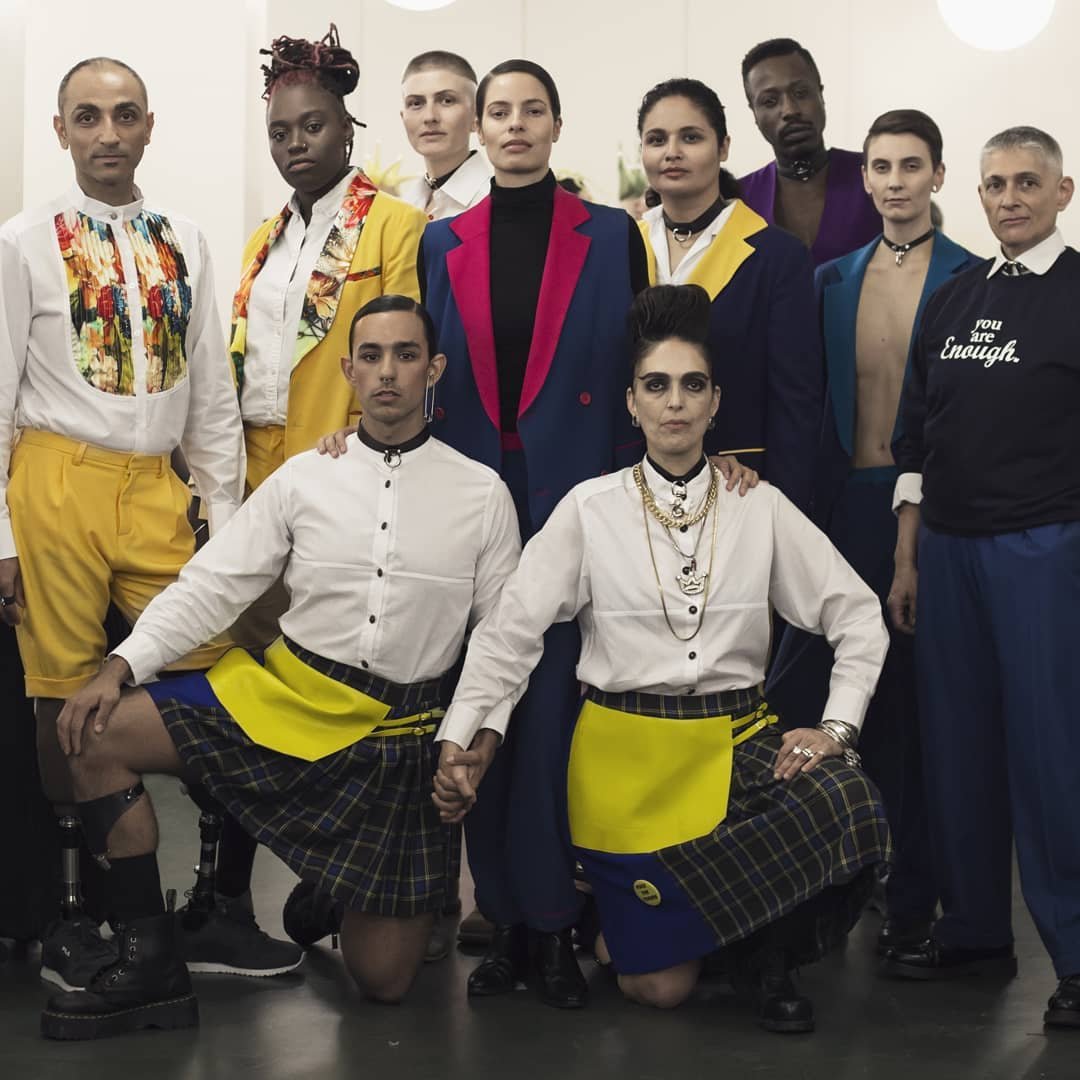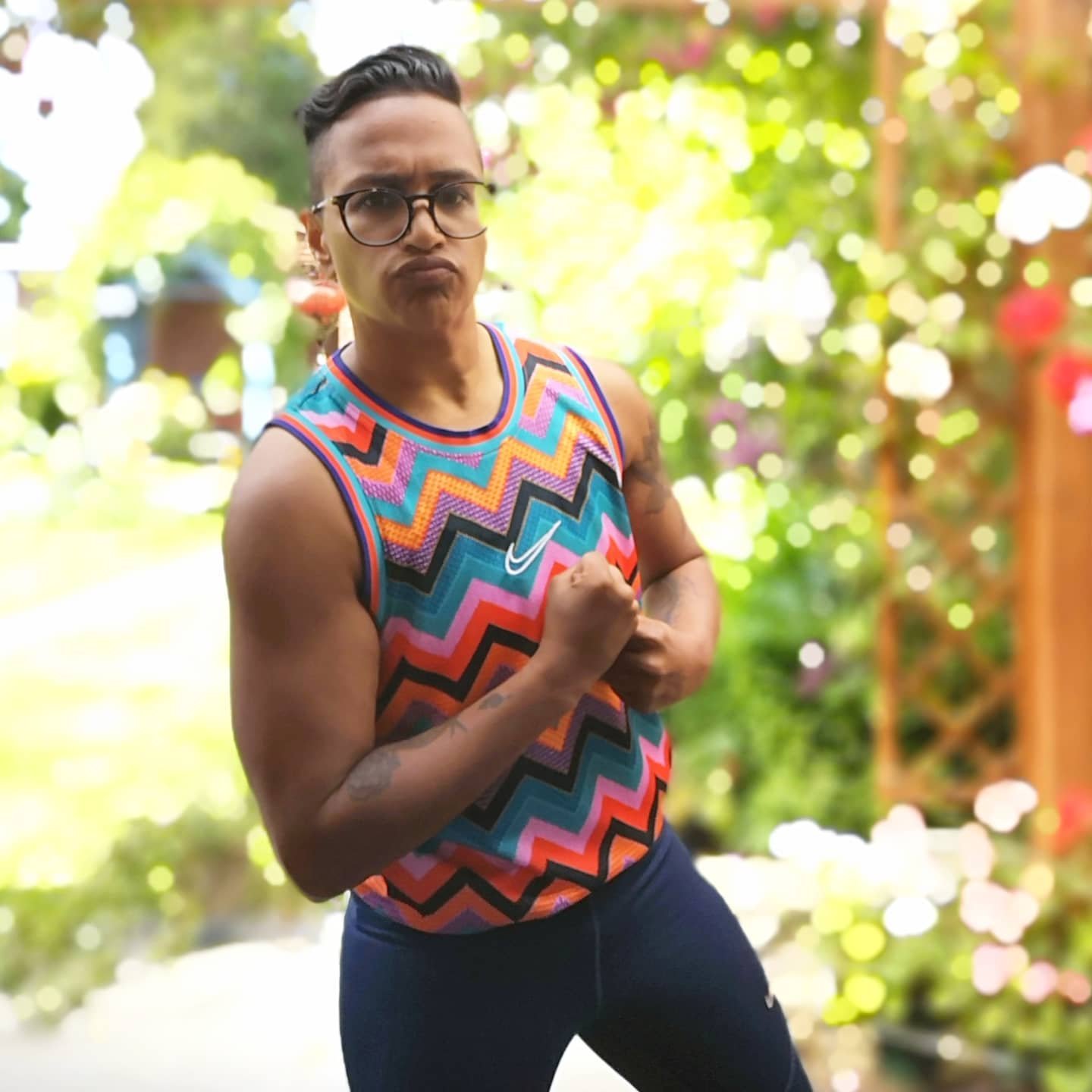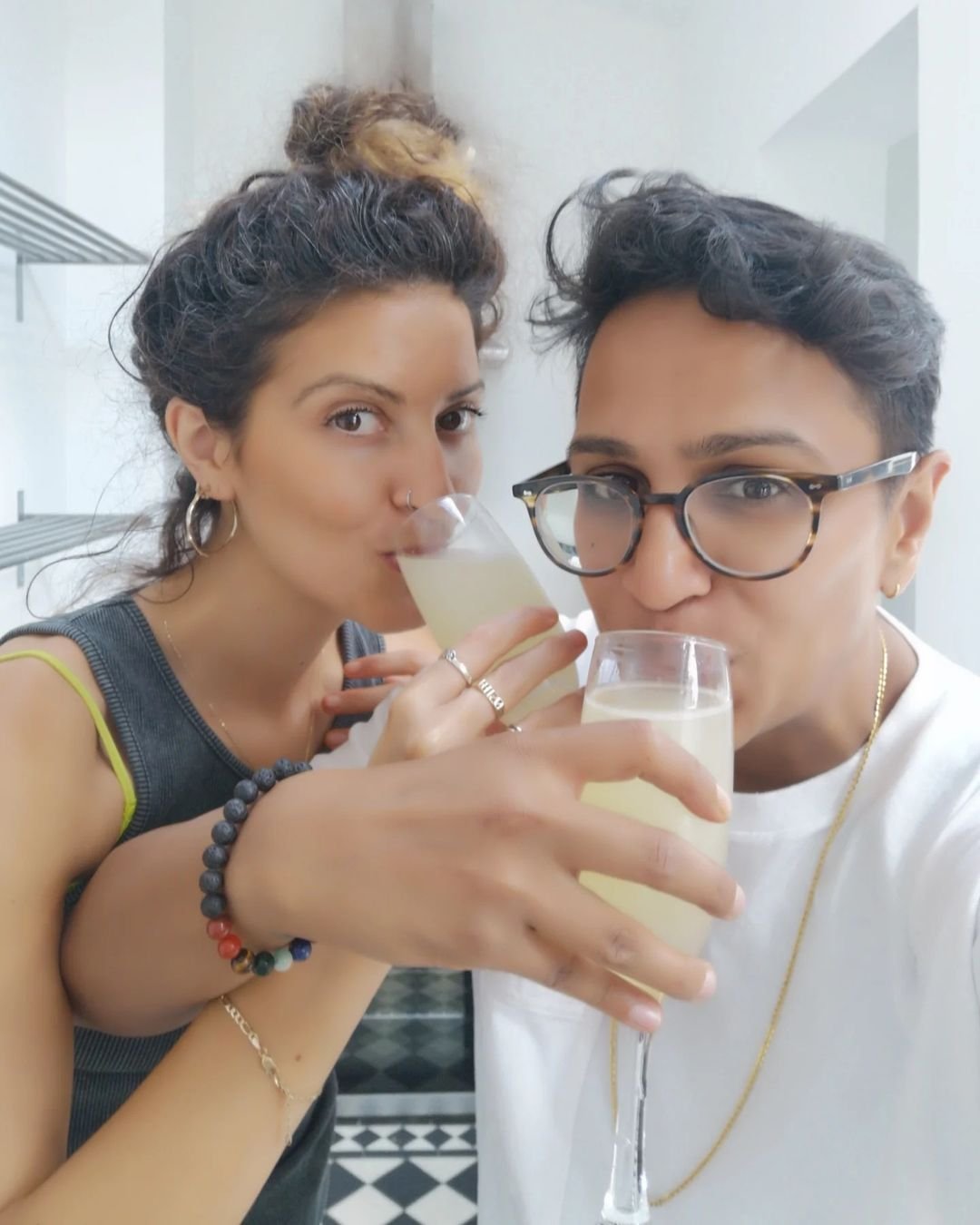Founder Spotlight With Meera Amin, Bull & Dagger
Photo Credit: Bull & Dagger
Meera Amin is the Founder of Bull & Dagger, the first genderqueer fashion label in the UK. Launched in 2015, Meera's brand seamlessly blends timeless designs with eccentric prints, vibrant hues, and flawless tailoring. Bull & Dagger’s collection includes blazers, waistcoats, tuxedo shirts, trousers, kilts, and more, each one making a bold statement in the world of inclusive and innovative fashion.
During the interview, Meera shares the origin story behind Bull & Dagger, one core value that she has incorporated into the brand, and her love for country music. Meera also discusses her challenges due to an autoimmune condition and how she's created a healthy work/life balance.
Let’s jump right in!
What inspired Bull & Dagger and how did you get started?
I started the brand in 2015 in London. A couple of years earlier, I was searching for something to wear to my best friend's wedding and discovered, to my surprise, that there were no UK-based queer fashion brands at that time.
In 2014, I left a job I hated due to discrimination and harassment. I took legal action against the employer and eventually took a settlement, but I felt ashamed for not continuing with the legal process. However, I knew it was necessary not to move forward because of its impact on my mental health.
Afterward, I wanted to do something worthwhile with the settlement money. Something that wasn’t just for me. Around that time, I was in a large central London clothing store and was asked (not for the first time) to leave the changing rooms because “they were for women.” That’s when the idea of a queer clothing brand came back to me, and I thought, “Fuck it, why not.”
What does your creative process look like when you're working on a new product?
Usually, random ideas pop into my head, and I make a note of them on my phone or in a notebook. Then I'll come back to the idea, and if it doesn't seem terrible, I’ll draw a rough sketch, and then if it looks good, I'll have technical drawings made up.
Also, life is my biggest inspiration. I wanted the first collection to be formal but not boring. I didn’t want to create a suit you'd find elsewhere. Now, when I’m brainstorming a collection, my inspiration might come from a conversation or when I’m out shopping and see a little old Indian grandma in a cardigan and think, “I could sell that to hipsters.”
What is one challenge you have faced as the Founder of Bull & Dagger and how did you navigate it?
We had to have a bit of a pause not too long after I launched the brand. I was unwell for quite a long time. I have an autoimmune condition, and I was overworking and not taking great care of myself. Fortunately, Bull & Dagger was pretty streamlined at that point so things could run more independently. I have also learned to prioritize my health over work and work in a more enjoyable and rewarding way.
What is your long-term vision for Bull & Dagger?
We’re back and fully operating, working on a pop-up in London for later this year, and I’m planning to create a new collection next year. It’s going to be quite different. My personal style and fashion, in general, has massively changed since the previous collection was released. When I started, I had only been out for about two years, and how I present has changed over that time.
If you could give one piece of advice to future LGBTQ+ entrepreneurs, what would it be?
Make sure you enjoy what you’re doing and balance work with other parts of your life. In the beginning, I did what a lot of people do. I could handle absolutely everything without consequence. Then I realized there are consequences in life and health.
After being forced to take a break due to illness, I came back with a new outlook. I started working on Bull & Dagger. I wanted to enjoy it rather than work because I felt pressure to succeed or create meaning out of it. To do what you love and not have your work take over your life in a negative way is a privileged position to be in. I love spending time with my friends and my partner. I think, as we mature, we realize there are things more important than work.
What LGBTQ+ owned brands are your go-tos and why?
I’m quite bad at buying things and am quite minimal, so I'm probably not the best person to answer this question! However, I do love No Sesso and Stuzo.
Tell us about one of your core values and how you have incorporated that into your brand.
Our clothing is produced ethically in London, despite the significantly higher costs. Producing in London means we can do our best to ensure fair pay and treatment of individuals involved in the production process.
How do you take care of yourself, especially during this moment in history (a record number of anti-LGBTQ+ bills being passed / an increase in violence against our community)?
I try to spend time in queer spaces and check on my queer and trans friends. Now more than ever, we, as marginalized people, need to come together to process and share both our joy and rage.
I also spend quite a lot of time at the gym - weightlifting, Pilates, yoga, and CrossFit. Working out really helps me process emotions, de-stress, and feel grounded.
When a workout doesn't do the job, wine, pizza, and a chat with my wonderful partner always helps. She's kind, understanding, makes me laugh and reminds me of how much joy there is in being queer.
Who is your favorite LGBTQ+ celebrity, and why?
Both Andrea Gibson and Billy Porter. Andrea is a great poet and author. I also love Billy’s style and have a bit of a crush on him.
Share one fun fact about yourself.
People are often surprised when I tell them I’m obsessed with Country music. It’s a bit unusual for a queer Indian person from London.
Check out Bull and Dagger’s profile here.


